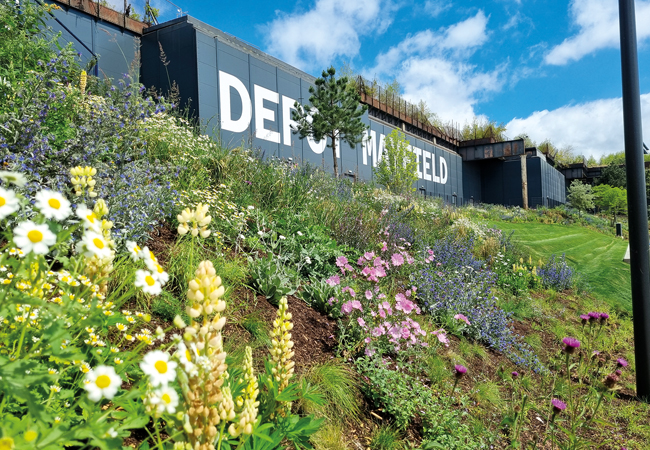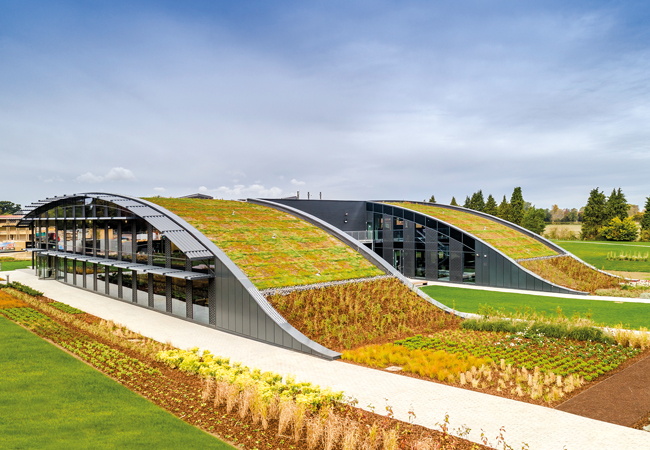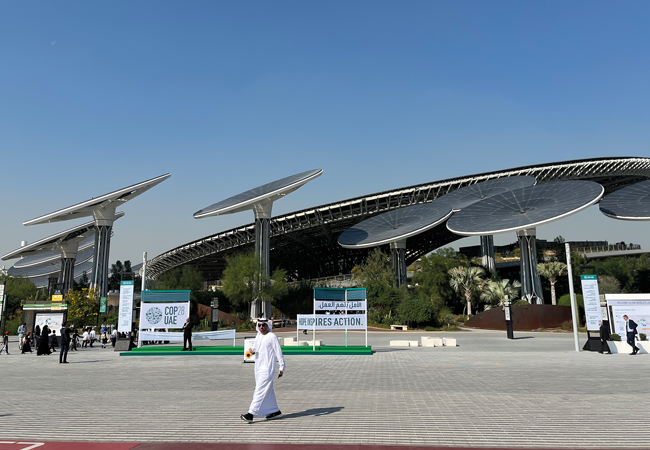
For two weeks last month, the United Arab Emirates (UAE) played host to 90,000 visitors for the annual UN climate change conference (COP). In the various meeting rooms, pavilions and plenary halls at Dubai Expo City, people sought to share insights, participate in discussions and negotiate strategies to lessen the effects of, and adapt to, climate change.
COP28 provided an impressive platform for a vast range of stakeholders – from scientists, policy-makers, energy companies and experts, to non-governmental organisations and groups representing marginalised communities.
In the various halls and meeting rooms, I found there was universal agreement for the need to limit global warming, but also disagreement about how to achieve this. It was an overwhelming experience, as there was so much to take stock of, and much to be gained from dialogue with others.
Triple crises
Several speakers at COP28 highlighted the triple crises the planet is facing: climate change, global pollution, and biodiversity loss. There is an international perspective to this, as pointed out in various talks, with representatives from some regions highlighting how they are particularly affected.
Indigenous communities in South America emphasised the continued deforestation on their continent, with consequences for their traditional lifestyles and loss of animal and plant species. Meanwhile, among African countries, representatives from Nigeria outlined how oil extraction has caused land, water and air pollution that is detrimentally impacting local agriculture and businesses.
The role of nature in mitigating the climate crisis was the topic of a session with Professor Nathalie Seddon, director of the Nature-based Solutions Initiative in the Department of Biology at the University of Oxford, and Dr Tony Juniper, chair of Natural England.
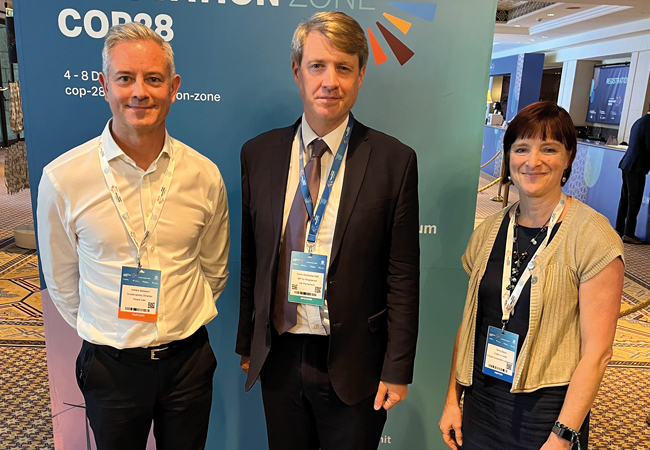
Ashley Bateson (left) with author of the Independent Review of Net Zero, Chris Skidmore and journalist Terry Slavin (right)
Seddon said that not only can increasing biodiversity improve microclimatic conditions and climate adaptation, but green infrastructure can also provide co-benefits for people’s mental and physical health. Juniper added that more needed to be done to reconnect Western societies with nature and said education could raise appreciation of the benefits of incorporating nature into developments.
At other sessions, representatives from banking, pensions and insurance funds acknowledged that more needs to be done in the finance sector to decarbonise investments, set objectives to support sustainable development, and assign metrics for assessing climate resilience.
Scientists stated that, while adaptation is about the need to design interventions to cope with climate impacts – such as overheating and flooding – building resilience requires a broader appreciation of how to anticipate and recover from severe climate impacts.
The energy transition
At a fringe event arranged by UK-focused organisations, Sir Alok Sharma MP, president for COP26 in Glasgow, emphasised the need for nations to keep alive the ambition to limit average global temperature rise to 1.5°C above pre-industrial levels – the Paris Agreement signed by more than 190 countries in 2016.
Sir Alok said the latest analysis shows that the world has already exceeded an average 1.1ºC temperature increase above pre-industrial levels. Global energy demand and greenhouse gas emissions continue to increase, with a risk that we may exceed 2ºC if further policy interventions are not implemented.
There are, however, positive indicators of progress in some areas of the energy transition to zero carbon emissions. According to the International Energy Agency (IEA), significant improvements have been made in renewable energy generation growth. Around 30% of the world’s electricity production is now generated from renewable energy sources and 85% of new capacity being built is renewable.
In some parts of the world, the uptake of renewable energy generation has been particularly high. There are times, for example, when 100% of electricity demand in Denmark is met by wind, and spells when energy-hungry California gets more than 95% of its power from wind and solar. Significant progress has been made in the UK to decarbonise the Grid, with more than 40% of annual electricity consumption coming from renewables.
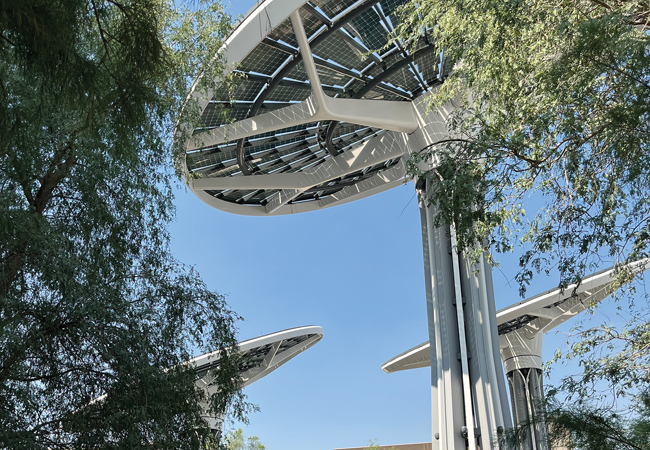
From a built environment and industry perspective, Sir Alok reinforced the IEA recommendation that the pace of energy efficiency improvements needs to double, to approximately 5% demand reduction each year. The IEA believes there is an important role for the finance sector in decarbonisation and is calling for ‘innovative, large-scale financing mechanisms to support low carbon investments’.
At another session, hosted by the UK Green Building Council, MP Chris Skidmore, lead author of the government’s Independent review of net zero, celebrated the launch of the Buildings Breakthrough.
This is a new pledge from more than 27 countries to make net zero and resilient buildings the new norm by 2030. These countries – which include the USA, China, the UK, France, Morocco and Japan – are collectively responsible for half of the world’s emissions. The details of the pledge are yet to be defined, but they will be developed over the coming months.
Personal takeaways
From a personal perspective, I have three key takeaways from COP28. First, the need for our sector to embrace performance-based design, with a focus on net zero carbon outcomes. At the end of COP28, there was a global agreement to ‘transition’ away from fossil fuels. As engineers, we should aim to eliminate fossil fuels from the built environment as soon as possible.
Second, we need a broader appreciation of the stakeholders affected by our projects, so we can better understand how our buildings impact people and the environment.
Finally, we need to design for climate-change resilience. This includes incorporating nature-based solutions and increasing biodiversity in developments. This will not only reduce temperatures and mitigate flood impacts, but it will also enhance wellbeing and make the future planet more habitable.
- Ashley Bateson FCIBSE is director at Hoare Lea
To read about CIBSE at COP28 go to …



